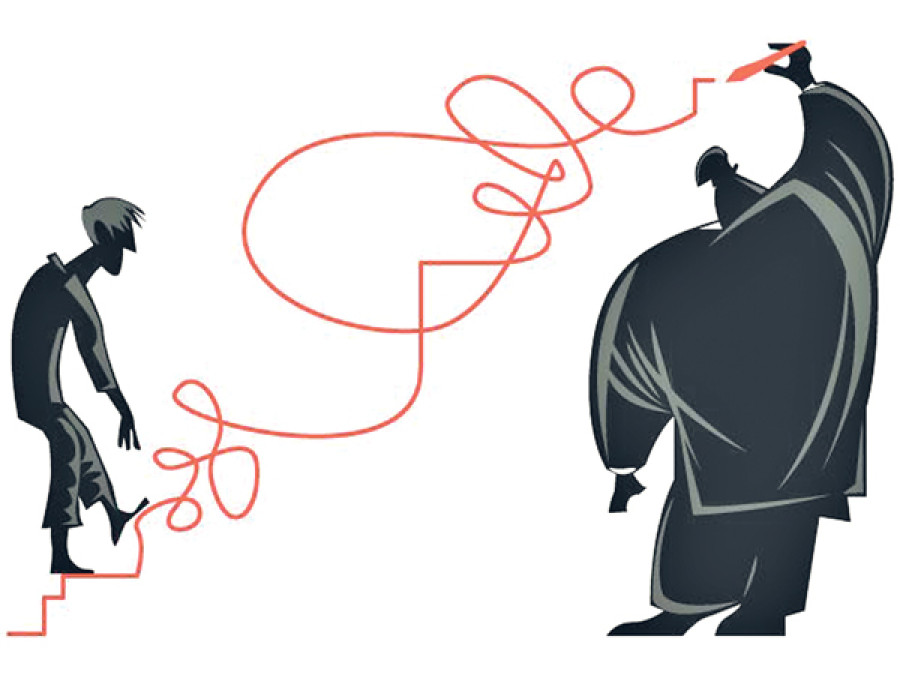Opinion
Reality check
Donor agencies need to be critical while evaluating whether their funds are being used appropriately
Randhir Chaudhary
I tried a lot to get information on the exact number of non-governmental organizations—NGOs and INGOs—in Nepal but have not got any authentic data so far. But one can guess that there may be hundreds of such institutions in the country. The donor community is spending millions of dollars annually in Nepal through these NGOs and INGOs. They are contributing to bring about socio-economic changes in Nepal. But here I am concerned about the way these non-governmental organisations are doing their jobs in Nepal.
Limited to reports
Many districts have been declared open defecation free (ODF) districts. But when I was in Parsa recently, one of my friends who works for the same project, told me that the project was aiming to make thirty districts ODF within 18 months and by the end of 2016, the entire Parsa district has to become ODF. Some of the villages have been declared ODF already, but in reality they are not ODF villages.
Similarly, the Local Governance and Community Development Programme (LGCDP) led by NGOs in the Tarai runs citizen awareness centres, which need to be comprised of 90 percent of Dalit women. But the literacy rate is lowest among Dalit women in the Tarai, so in reality their participation is mere tokenism. They put their thumb-print to documents prepared by educated people with little idea of what they say. There are several such women in my own district, Mahottari. When I asked them whether they knew what documents they were putting their thumb-print to, they simply replied, “yes, this is the document that gives us two to three hundred rupees and a box of snacks.” Thus, such programmes do not have the desired impact on the targeted groups.
There are dozens of human rights organisations in the country as well. But only a few of them are monitoring the current Madhes movement. I wonder if there are any NGOs in Nepal publishing investigative reports on the human rights situation prevailing in the Tarai. There are very few NGOs that are issuing press statements about the protests.
Views and reality
There are different views about the efficacy and functions of NGOs in a democracy. From a political point of view, NGOs are viewed as a sector that balances the power of the state. It is also believed that NGOs promote better governance as they enable bottom-up democracy that promotes pluralism and development. From an economic point of view, NGOs provide social welfare services to vulnerable groups.
But the way NGOs are structured and the way they function are very different. The power of decision-making usually lies with the director of the board and his or her success depends on the amount of fund he or she can gather from the donor community on the basis of well-written reports rather than by mobilising local people or making an actual difference on the ground.
Moreover, the information on the work and successes of NGOs is communicated through media, social media, conferences and workshops. They are therefore abstract and receptive rather than interactive, and they target a specific group of people who are part of a project. As Islah Jad, a feminist scholar points out, NGO-led projects are rarely driven by volunteerism and conviction but rather implemented by professionals that are hired by them “to do the job.”
Need for change
It is presumed that NGOs can bring drastic changes in the sector they choose to work in. But there is a need to change the way they are functioning in the country. Even the donor agencies need to be critical while evaluating whether their funds are being appropriately used or not. They need to make sure that the projects are actually making a difference rather than giving importance to well-written reports.
There must be a random evaluation system rather than a scheduled one. The donor bodies need to keep a close eye on the NGOs and INGOs. The project evaluators should go to the field instead of staying in the Capital or at district headquarters, calling some key figures from the rural villages to give the progress of the project. The budget spending should be need-oriented; in the development sector, the donors need to prioritise output over administrative expenditure. Volunteerism should be adopted adequately.
Chaudhary is associated with Terai Human Rights Defenders Alliance




 14.12°C Kathmandu
14.12°C Kathmandu










